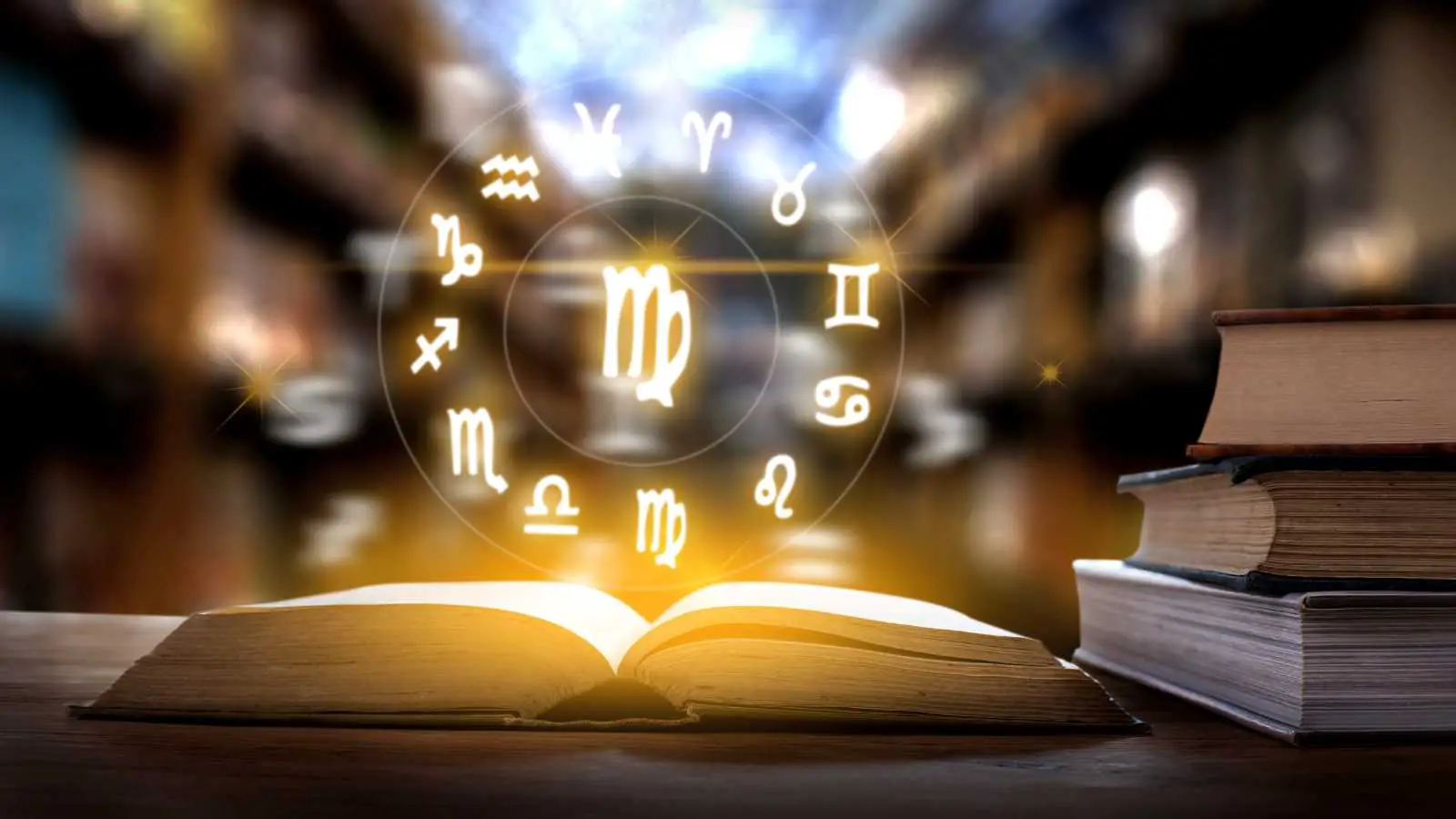People employ a variety of strategies and tools for self-development, depending on their unique needs, interests, and goals. From coaching to counselling, from journaling to mindfulness practices, people explore, experiment and find the methods that resonate with them the best to support their personal growth.
Astrology has been used for centuries as a tool for understanding ourselves and our place in the world. While it doesn’t provide a direct roadmap for self-development, astrology can offer insights that may guide personal growth and transformation in positive ways.
If you’re on a quest for self-growth and the concept of the Universe resonates with you, then integrating astrology into your personal growth journey could be a wonderfully enriching addition. Stick with me for a little longer to learn more about what exactly astrology is and how it can help. I promise to share with you my personal experiences as well!
Is there a difference between self-growth and self-development?
Before I get started with astrology and how it can help on the path of self-growth, let’s clarify the difference between self-growth and self-development.
Self-growth and self-development are terms often used interchangeably, as both involve a conscious effort to improve one’s knowledge, skills, attitudes, interactions, and overall quality of life. However, they can also be seen to have slightly different connotations depending on the context in which they are used.
Self-Development: This term typically refers to the intentional activities and practices one undertakes to enhance their skills, abilities, and competencies in various areas of life. It may be more associated with the acquisition of new abilities, such as learning a new language, gaining leadership skills, or mastering a new software program. Self-development often has a professional or skill-oriented focus, although it can certainly include personal aspects as well.
Self-Growth: While similar to self-development, self-growth might be seen as more holistic and inward-focused. It tends to emphasize personal evolution and the expansion of self-awareness, emotional maturity, and wisdom. Self-growth may be associated more with emotional intelligence, understanding oneself better, changing negative habits, improving relationships, or developing a more positive mindset.
Despite these slight differences, both terms essentially involve the process of improving oneself, and both contribute to a person’s journey towards realizing their fullest potential. In practice, self-growth and self-development are intertwined and complementary processes. One’s self-development efforts often lead to self-growth and vice versa.
What is astrology?
From darkness to light (or to astrology)
In the year 1995, I found myself “stuck” in a toxic relationship, lost in its shadows, grasping for clarity. Questions that haunted me day and night were: “Why is my life so dark? What is happening and why?” In search of answers, I turned to an astrologer for the first time. What I yearned for were direction and explicit advice – should I stay or should I flee?
But instead of providing me with a clear path, the astrologer unveiled a fascinating perspective, a hidden layer of reality. She shed light on why I had attracted such a relationship into my life, the lessons it brought for me, and above all, she illuminated my power of choice. The future was not prescribed but entirely in my hands.
Peering into the planets and the colourful lines interconnecting them, I was in awe of the secrets they offered. How could these symbols divulge my strengths, weaknesses, and why was I entwined with such a toxic partner? It felt like cracking open a cosmic code.
Years later (after leaving the guy), I found myself sharing a classroom with a group of similarly enthralled individuals. Together, we journeyed through the captivating world of planets, houses, ascendants, oppositions, synastry, solar returns, and other astrological marvels. While these terms may seem like a foreign language to the uninitiated, they are keys to unlocking profound impacts on our lives. But how does it all connect?
What is astrology?
“The meaning of life is to find your gift. The purpose of life is to give it away“
Pablo Picasso
Astrology is an ancient system that suggests there is a relationship between astronomical phenomena and events in the human world. At its core, astrology proposes that the movements and positions of celestial bodies – like the sun, moon, stars, and planets – at the time of an individual’s birth can influence their personality traits, interests, and life’s path. This belief system sees the universe as a large web of interconnectivity, where celestial phenomena mirror the events, tendencies, and characteristics experienced on Earth.
A key tool in astrology is the natal chart, sometimes called a birth chart. The natal chart is essentially a map of the sky at the exact moment of your birth (the exact place and timing of your birth). It displays the position of the Sun, Moon, and planets, as well as their relationships with each other, within the 360-degree circle of the zodiac. This chart is unique to every individual, even twins, due to the constant movement of the planets in their orbits.
So what exactly the astrologer looks for in your natal chart in order to read it:
- Sun Sign: Your Sun sign represents your core identity, your ego, and your path in life. It’s determined by the position of the Sun at the time of your birth. Some aspects to your natal Sun can also play an important role, especially in synastry (relationship astrology).
- Moon Sign: Your Moon sign represents your emotional nature, instincts, habits, and unconscious reactions. Moon can represent a mother as well.
- Rising Sign (or Ascendant): Your Rising sign represents how you present yourself to the world, your first impressions, and your physical appearance. It’s determined by the zodiac sign that was rising on the eastern horizon at the time of your birth. It is also the beginning of your natal chart, the beginning of the 1st astrological house of “Who you are”.
- Houses: The natal chart is divided into twelve sections, known as houses. Each house represents a different area of life, like career, love, relationships, and personal growth. The planets’ placements in these houses during your birth affect how you approach these aspects of your life.
- Planets: Besides the Sun and the Moon, the positions of other planets (Mercury, Venus, Mars, Jupiter, Saturn, Uranus, Neptune, and Pluto) provide more specific information about different facets of your personality, depending on the house and sign they’re in. Note: It’s important to note that for an accurate and comprehensive astrological reading, the exact time and place of your birth are crucial. When these details are known, an astrologer can evaluate the placement of the planets within the houses, which provides a deeper layer of understanding. However, if this information is unavailable, an astrologer can still interpret the significance of the planets in the signs, but a reading of their placement within the houses would not be possible. This, in turn, limits the depth of insights that can be provided by the reading.
- Aspects: Aspects are the angles that planets make to each other on your chart, and they describe the relationships between the planetary energies. Certain angles (like conjunctions, oppositions, trines, and squares) are to be harmonious, challenging, or neutral, which influence how those planetary energies interact within the person’s personality. In synastry (relationship reading), planetary aspects between two individuals’ charts can show a romantic, toxic, platonic or soul-mate relationship.
By analyzing all these elements, an astrologer can provide insights into your personality, strengths, weaknesses, preferences, challenges, and potentials. A natal chart reading can serve as a tool for self-understanding, decision-making, and personal growth, offering a different perspective on your life journey.
When and how to use astrology for your personal growth?
“The path of self-discovery, often involving harsh truths about oneself, can be daunting and even overwhelming“
Astrology, much like yoga and meditation, holds the potential to benefit everyone. It is a hidden gem waiting to be discovered and applied in our personal lives. However, despite its availability to all, not everyone is prepared to confront the truth about themselves. It can be a daunting and even intimidating experience. A friend of mine stands as a case in point. He is currently facing a challenging time in his life, and while he believes in astrology, he isn’t quite ready to face what an astrologer might reveal to him. And that’s perfectly alright.
The timing for seeking guidance from an astrologer is as good as any. There is no need to wait for the sky to fall or for chaos to erupt at home or work. In fact, astrology can help you prepare for or even avoid such situations. In addition to the insightful natal chart, which delves into your life path and unique gifts, there are other astrological readings such as synastry, solar returns, transits, and karmic interpretations, among many others.
Astrology can provide a valuable lens for understanding ourselves, our relationships, and the world around us. Each type of astrological reading offers a unique perspective and can assist in different aspects of personal growth. Let me quickly guide you through some of the astrological readings and explain how they can assist you in your personal growth journey:
Natal chart reading
As already mentioned above, a natal or so-called birth chart is a snapshot of the sky at the exact moment of your birth, detailing the positions of the sun, moon, the main planets, and the aspects between them. A deep understanding of your natal chart can reveal your inherent strengths, weaknesses, gifts and potential life lessons, providing a roadmap for personal growth and self-improvement.
Transit Reading
Astrological transits, for instance, offer an insightful view into potential future events. These are not haphazard predictions but rather precise mathematical calculations based on planetary movements at a specific time. Transits track the current movements of the planets in relation to your natal chart. This reading can help you understand why certain situations occur in your life, hidden lessons and explain the energetic influences you’re experiencing at any given time. While astrology doesn’t dictate your actions, it provides insights into how best to navigate your life, make decisions, and learn from your experiences.
Progressions
This technique progresses the planets and points of the natal chart forward in time according to specific methods. The most commonly used progression system is “Secondary Progressions”. This system moves the planets and points roughly one day’s worth of movement for each year of the subject’s life. So, for example, the progressed Sun position represents a person’s evolving needs and developments.
Solar Return
The solar return is another reading in astrology that provides a predictive outlook for the coming year, helping you identify potential challenges and opportunities for personal development. This reading is a snapshot of the sky at the exact moment the sun returns to its natal position, on or around your birthday each year.
Solar return can also help manifest your desires. It is called “turning your solar return”. What an astrologer does is calculates where (location) you should celebrate your next birthday to invite desired planetary energies (=dream) into your life. Unbelievable, right? I assure you, it’s remarkably effective.
A decade ago, after the end of an unsuccessful relationship, I yearned for love. I consulted an astrologer who suggested (according to his calculations) I celebrate my birthday in the Middle East to activate my 5th and 7th houses – the ones governing love and relationships. He explained that this act would “lock” the planets’ auspicious aspects into my chart for a year, bolstering the potential for a romantic encounter. Believe it or not, it worked!
Synastry reading
When dating someone or engaging in a professional partnership, synastry readings can shed light on the dynamics between individuals. The synastry is a relationship analysis that examines the compatibility between two natal charts. It can help you understand the dynamics within your relationships, promoting interpersonal growth and improved understanding and communication.
I recall a friend who was struggling in her relationship. She asked me to analyse the synastry between her and her partner. Placing both natal charts one on another revealed difficult planetary placements and a lack of romantic aspects, hinting at the challenges they were facing. Fast forward to today, she’s in a harmonious relationship with a partner whose synastry is teeming with aspects that suggest long-term compatibility (and love).
Composite Chart reading
Composite charts are used to assess the overall compatibility between two individuals. Unlike synastry, which compares the individual charts of two people, a composite chart “unites” both charts into one to illustrate the relationship as its own unique entity.
Karmic astrology
This, without a doubt, takes the top spot in my preferences, and for good reasons too. Karmic astrology analyses how past incarnations influence your present life. It’s believed that we bring lessons, unfulfilled desires, and even karmic debts from our past lives into our current existence. These manifest as recurring patterns, deep-seated fears, unexplained talents, and even specific life events meant to guide us on our soul’s path.
To be more specific, Karmic astrology examines the placements of the Nodes of the Moon, Saturn, and Pluto, among others, in your natal chart. The North Node represents your karmic destiny – lessons your soul yearns to learn, while the South Node shows your past life traits and talents that you bring into this life. Saturn, known as the taskmaster, signifies areas where you face limitations and need to work hard to develop mastery, often linked to karmic lessons. Pluto points towards profound transformations and rebirths in your life, another area of karmic importance.
Karmic astrology is a complex and very sensitive reading. It’s essential to approach it with an open mind and a willing heart. If karmic astrology resonates with you, I highly advise exploring karmic astrology only with an experienced astrologer who can provide guidance and support as you navigate your karmic journey. My go-to karmic astrologer is Katie! I met her personally in New York City many years back, and till today, she is my lighthouse during challenging times.
Astrology is not a deterministic system but a tool for self-understanding and growth. By working with your own astrologer who can help with astrological readings, you can gain insights, make more conscious decisions, and navigate your life paths with greater self-awareness and intentionality.
Closing thoughts
Astrology involves understanding the meanings of the twelve zodiac signs, twelve houses, and various planetary placements and aspects. Each sign has its unique traits, strengths, and weaknesses that can influence the areas of life represented by the houses they occupy in your natal chart.
The journey towards astrology should unfold organically, just like yoga and meditation seep into one’s life when the time is ripe. It cannot be forced or imposed. It’s a deeply personal calling to delve into life’s mysteries, unearth your innate lessons, and harness your gifts for the collective good. And when the inner call to consult an astrologer reverberates within, know that you’re ready to embark on this transformative journey.




